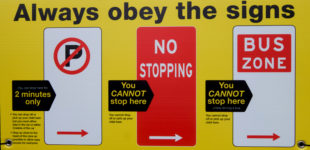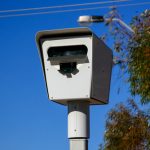I’ve Received a Fine in NSW, What Happens Now?

Receiving a fine is already a frustrating experience but struggling to find out how to pay your fine or to check your balance can make things even worse.
Some general information is outlined below in relation to what fines are, how to check if you have a fine and what happens if you don’t pay a fine.
What is a ‘fine’?
A ‘fine’ is a financial penalty you have to pay to the government for allegedly braking a law.
Fine can be issued through a range of mechanisms, including penalty notices, infringement notices, criminal infringement notice (CIN) and court orders.
Fines are commonly issued in New South Wales for:
- Traffic infringements such as speeding fines, red-light camera fines and fines for illegal mobile phone use.
- Public Transport fines such as not having a valid ticket whilst travelling or not tapping on via Opal.
- Local Council fines such as parking fines and littering notices.
- Minor criminal offences, which are often dealt with by criminal infringement notices for offences such as drug possession, shoplifting and offensive conduct.
It is important to ensure you are paying an actual fine and not a private notice to pay, which is sometimes referred to as a ‘private fine’, which private business sometimes try to impose for trespasses such as parking without authorisation in a privately owned car park.
Private fines are not really fines at all but are a private dispute between yourself and an orgainsation. In some circumstances, you may not be obliged to pay for the ‘private fine’.
Not paying fines
When you receive a fine there should be a due date by which you need to pay.
If you fail to pay the fine by the specified date it will be sent to Revenue NSW who will issue a penalty reminder notice to you stating you must pay it within 28 days.
Revenue NSW collects debts for the government in New South Wales.
If you fail to pay the fine within the 28 days provided, an additional overdue fine will be issued. Currently, Revenue NSW will add $65.00 (or $25.00 for under 18s) to the amount of the fine when it issues an overdue fine.
If the debt remains unpaid, Revenue NSW will then issue an enforcement order.
An enforcement order could result in certain actions being taken against you to recover the debt. This could include:
- The suspension of your driver licence;
- Cancellation of registration;
- Garnishing of your bank account or wages; or
- Seizure of your property by the sheriff.
To avoid an enforcement order coming, you should check and pay your fines as soon as you can or, if you believe it has been issues in error, request a review or elect to take the matter to court as soon as possible.
How to check if you have a fine in NSW
If you have received an initial notice or a penalty reminder notice, you can pay the fine or check your balance via the Revenue NSW website.
You will need to provide the penalty / payment reference number at the top of your notice.
If your fine is overdue and an enforcement order has been issued, you will need to search via myEnforcementOrder portal.
You will need to provide the document reference number at the top of your notice.
You can also pay your fine or check your balance via the myServiceNSW mobile app.
I’ve lost my infringement or penalty notice, can I still check?
If you have lost the payment or document reference number listed on your notice, you can still enquire about and pay your fine.
If your fine is not yet overdue, you can call Revenue NSW on either 1300 138 118 or 02 7808 6940 or via the Fine Enquiry Form.
If your fine is overdue, you can call Revenue NSW on either 1300 655 805 or 02 7808 6941 or via the Overdue Fine Enquiry Form.
Revenue NSW phone lines are attended from 7:30am to 8:00pm, Monday to Friday.
You will need to provide the following information as proof of identification when calling:
- Address details;
- Date of birth;
- Licence number (if relevant); and
- Registration number (if relevant).
Challenging a fine
If you believe there has been a mistake in issuing you a fine or there are other reasons that contributed to the offence that need to be considered, you can request a review.
The following factors likely result in leniency or cancellation:
- The offence did not take place or the fine had been issued in error.
- You were not responsible for the vehicle at the time of the offence.
- For demerit offences, that you have a good driving history.
- A medical emergency or crisis explains why the offence took place.
- You have an intellectual disability, mental illness or cognitive impairment, are a minor, or are homeless.
If you disagree with the findings of the review, you can elect to take the matter to court, in which case you will be given an initial court date during which you can either seek to have your case listed for a defended hearing, or enter a guilty plea and request leniency such as a section 10 dismissal.
However, you should be aware that the maximum penalties applicable in court may be a lot higher than the fine you were issued, and you may even be liable for the other side’s costs if you lose and, in the case of a CIN, a conviction being entered in your criminal record.
If should be noted that a criminal conviction will not be recorded against your name when you are issued with a fine. Rather, only a court can give you a criminal record.
Unable to pay?
If you are experiencing financial hardship, there may be an option to pay off the fine by instalments.
You may be able to pay by instalments if you:
- Receive a government benefit;
- Can pay the full amount within three months;
- Need longer than three months to pay;
- Are already paying off other fines.
It’s important to request to pay in instalments as soon as possible to avoid extra fees.
Going to court for a traffic offence?
If you are going to court for a traffic offence, call or email Sydney Criminal Lawyers anytime to arrange a free first consultation with an experienced, specialist traffic lawyer who will accurately advise you of your options, the best way forward, and fight for the optimal outcome in your specific situation.






